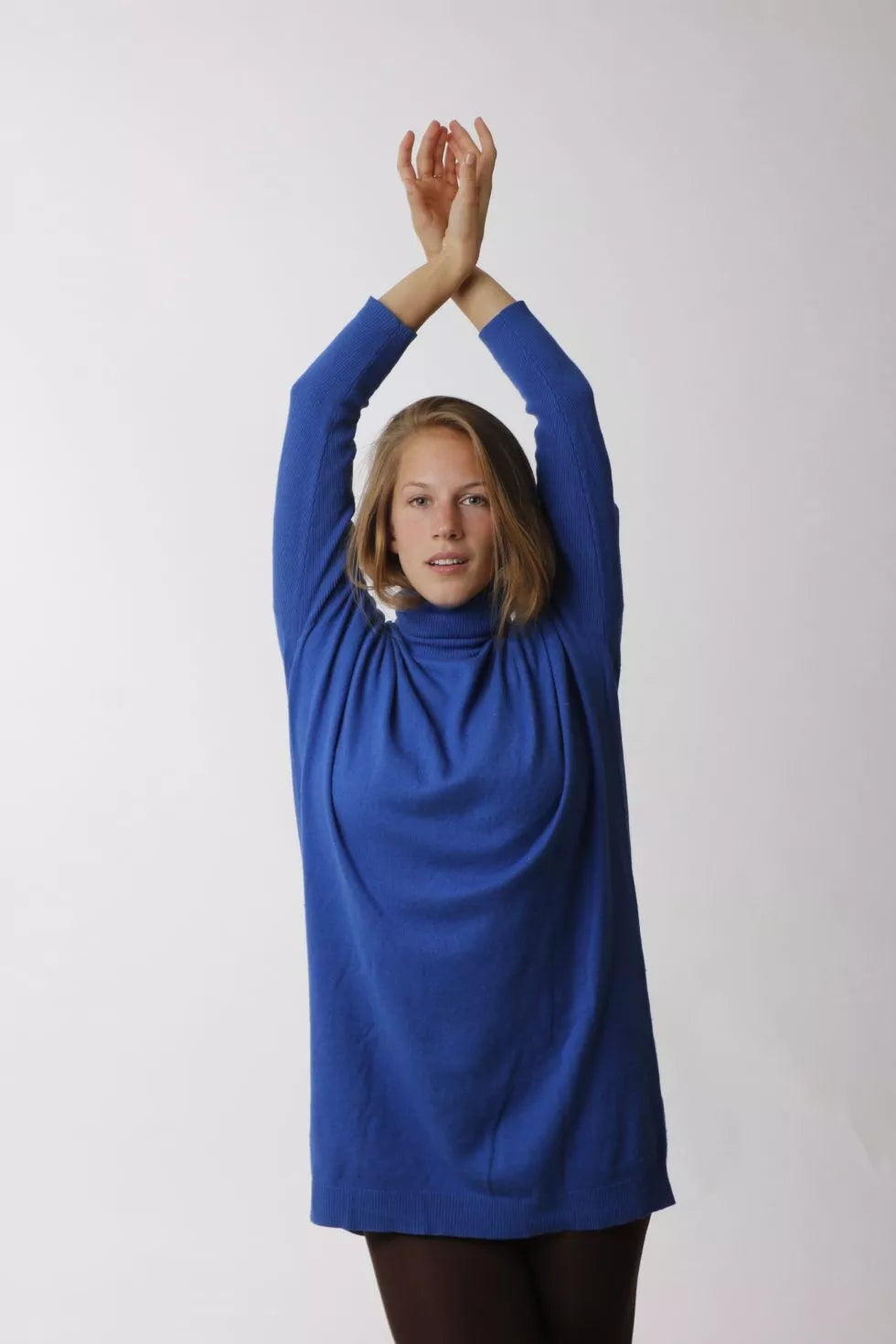Julia, a former professional dancer in her early 30s, sits across from me in a blue wool dress, her legs elegantly crossed, her long blonde hair resting casually on her shoulders.
when did you start dancing
I started dancing when I was 3 years old and it got me so excited that I kept wanting more and more of it. At the age of 9 I started to train dance at the SBBS (Swiss Ballet School, today the Zhdk).
And your dance direction?
I enjoyed classical ballet training, as you would imagine, with tight tights, pointe shoes and a tight bun in my hair. But of course I also trained in other styles such as jazz, contemporary dance, character dance and so on. . .
And after you graduate?
Well, I've never danced in a purely classical company.
Why not?
I was told during my training that I wasn't good enough for classical ballet.
Not good enough – physically?
Not necessarily physically, more technically not clean enough to become a ballerina. But I wasn't told that until my senior year at the Vienna State Opera (grins and takes a sip of coffee).
Ok, tough words. Speaking of which, there are rumors about Company's. Is it true that many dancers use stimulants or drugs?
I've never been in a company like that, I only know it from hearsay. But yes, consumption of certain stimulants seems to be widespread. Especially in classic company's the pressure is enormous, you have to function no matter how and in what condition.
Crazy when you consider that the body is the main working tool for you dancers. What do you say again, when does your sell-by date start, at 35?
Yes, it starts around 30.
Do you think that's justified?
It's true, after your mid-30s you hardly get any new engagements, there are a few exceptions.
Should that be changed?
Absolutely, but that has to do with the structures in this industry and also with the general abuse of power. The image of the pretty young girl and boy is still popular on the stage. Most classical pieces are also about it. That's why I appreciate contemporary dance, because it breaks with such images and a change is noticeable. A young dancer certainly has the technique, but an experienced, older dancer has the necessary emotion and, in my opinion, you can't learn that, you can only live it.
What do you mean abuse of power?
We experience this topic in connection with # metoo . Translated into the world of theatre, it means higher-ranking people, sole rulers, for example the director terrorizes the theater staff and shamelessly exploits his position. I wrote my master's thesis about it. Dancers are still at the mercy of their superiors and have practically no rights. If you express your opinion or feel differently, you won't get the next role, it's that simple.
Back to you, what happened after your training?
In my final semester I auditioned all over Europe and then got my first engagement in a junior company. There I danced in a very contemporary way, which was very unusual, ie barefoot and with blowing hair (laughs) .
An exciting time with many different dancers and cultures. Very free, which was sometimes challenging for me, who is bound to classical structures.
Different people and cultures. Your vocation has also brought you to Israel, tell me about it.
Yes, I danced in Israel for different companies and projects for 3 years. A country in which I felt very comfortable.
Feel good why?
I could be who I am. Sometimes loud, angry, happy, just be. The culture and the people welcomed me very warmly and the dance world in Israel is very unique, emotional, I would almost say animalistic.
I would like to go back to physicality again. What are the remaining damages after such a dance career?
You can't generalize, but the back is definitely a big issue, the knees and ankles. I myself broke my foot while I was dancing. This is something that happens quickly when the body is tired and overworked.
Do you think that as a dancer you are sufficiently secure in old age?
Not really. There is a slow development at the theaters and something like contact points, but there is still a long way to go. The income of a dancer is comparable to that of a cash register clerk, only that usually doesn't end at 35. Most leave this industry with no financial security or prospects for a career thereafter. In addition, many of them did not graduate from school due to all the training.
Does that mean you give everything, train like a madman for a short window of success and then not only have a bad body and mind, but also zero security in old age?
Yes, you could look at it that way (thoughtful look).
Okay, so my last question is why? What does dancing mean to you?
Dance is my home for me.
Julia will be trying out our Zuya limited Orange Edition during her rehearsal period over the coming weeks. We will tell you how you find it!
Julia can be seen next on February 17th, 2022 in the opening production of the Jungspund Theater Festival: https://jungspund.ch/eskamelimzirkus/
Image: ©Roland Teubl





